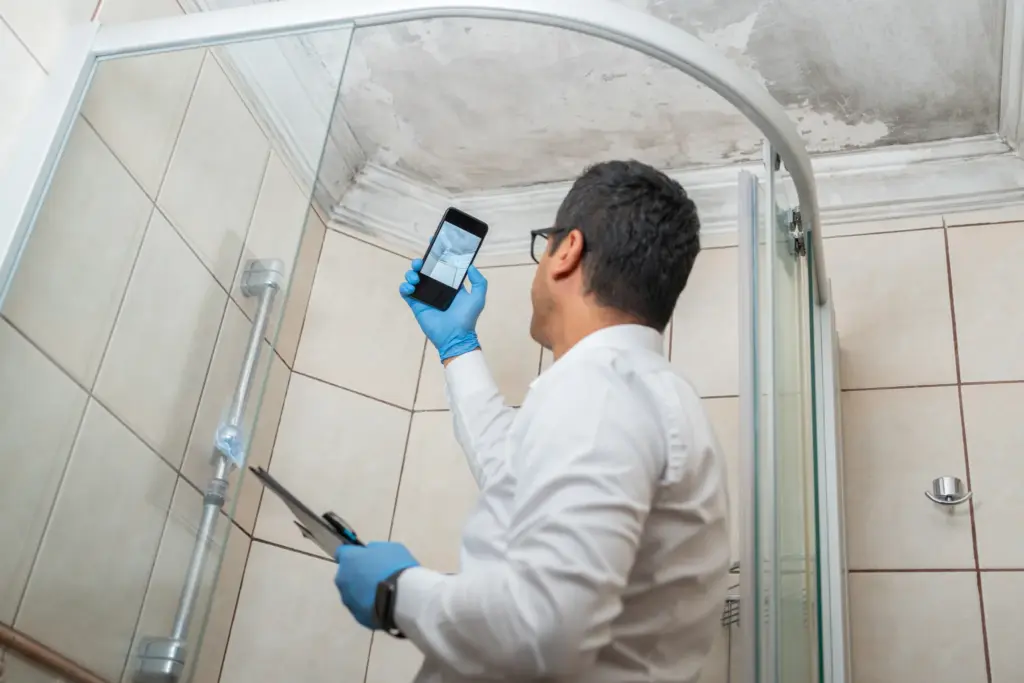Regardless of whether water damage begins as a minor inconvenience, such as a leaking pipe or flooding and roof seepage, when not addressed immediately, it accelerates to further contamination in the form of mold, structural integrity, and even diseases.
Maintenance concerns can not only become very expensive legal issues for property owners, but also become very expensive litigation issues when tenants, employees, or other visitors are injured or ill due to them. Restoration firms are of utmost importance in reducing not only damage and physical harm but also legal liability.
The Health and Safety Dangers of Mold
Mold grows best where there is moisture, and when it gets a foothold, it may travel via HVAC ducts and walls at the expense of indoor air quality. Mold exposure is seen to be related to health problems in the respiratory system, asthma, and long-term health disorders, thus a center of a range of individual injury lawsuits. When property owners do not address water damage or mold promptly, they can potentially be labeled as being negligent.
William Theodoros, Attorney at Theodoros & Rooth, P.C., stresses: “When mold exposure results in serious illness, courts often look at whether the property owner acted responsibly. Ignoring clear warning signs can be seen as a breach of duty.”
Liability Risks for Property Owners
In case of accidents such as injury of tenants, workers, or clients as a result of unsecured conditions, the legal implications may be harsh. Flooded ceilings adjacent to the premises that lead to collapse or a moldy basement may cause medical expenses, wage loss, and even wrongful death in the worst of all scenarios. On top of personal actions, failure to offer a secure setting may result in regulatory penalties.
Dr. Nick Oberheiden, Founder at Oberheiden P.C., notes: “Liability in environmental injury cases doesn’t just come from personal injury claims. Businesses can also face regulatory scrutiny and costly litigation if it’s determined they ignored known hazards.”
The Role of Professional Restoration Services
This is where restoring companies are needed as an inseparable ally of property owners. They can clean up the whole process of drying to mold elimination, including documenting the problem and repairs. The presence of certified restoration professionals on-site instigates due diligence and may cut down potential liability in court.
Carl Panepinto, Marketing Director at Manhattan Flood Restoration, explains: “Proper remediation is both a health safeguard and a legal safeguard. By addressing mold and water damage thoroughly and documenting the process, property owners can protect themselves against future lawsuits.”
Documentation: The Key to Legal Protection
Evidence is a key factor in a personal injury case. Restoration firms not only fix the breakage, but they also establish documentation, which indicates that effective action was implemented. Comprehensive reports, photos, and third-party evaluations can be important supporting evidence in case property owners find themselves the recipients of claims in due time.
Timothy Allen, Director at Corporate Investigation Consulting, emphasizes: “In litigation, documentation often makes or breaks a case. Property owners who can show they acted swiftly and responsibly after water damage are far better positioned to defend against negligence claims.”
The Financial Impact of Neglecting Restoration
Not addressing mold and water damage not only ends in lawsuits, but has the potential to rapidly erode property value and add insurance premiums. Untreated mold in buildings can cost them market appeal, hence may hinder the pace of renting or selling.
Furthermore, insurance companies can increase premiums or reject claims in full when there is evidence that the property owner did not perform maintenance to render the place safe.
Without treatment, severe cases can even virtually cause a forced renovation or outright condemnation of a property, which can present a financial drain to owners. The right restoration both saves money in the long run and preserves the equity of the property.
Restoration as a Reputation Safeguard:
More than that, there is a reputation at stake. Tenants, employees, or customers who are the victims of unsafe living or working conditions usually post their testimonies publicly. Poor publicity or bad reviews on the Internet related to the mold-related disease could ruin the reputation of a property owner for years afterward.
Restoration companies assist property owners to exercise responsibility and care by restoring the properties to a safe and habitable state. This initiative of forward thinking creates a relationship of trust between tenants and customers, protecting reputation and the long-term relationships of the business.
Preventive Strategies for Long-Term Risk Reduction
The best approach to preventing damage to property and/or lawsuits is to prevent them. Frequent inspections, moisture detectors, and prompt action in responding to leaks or flooding maximally minimize the risk of mold growing.
This is because by collaborating with restoration players before the disaster happens, mitigation will be quicker in the case of a disaster.
Proactive steps will not only ensure property owners save their buildings, but will also play the role of ensuring their finances are secured. As we all know, the adage is true: an ounce of prevention is indeed worth a pound of cure; in this instance, it may also be worth millions of dollars of settlements avoided.
Conclusion
Water and mold damage have both physical and legal implications that are disruptive to property owners if left unattended. These effects include damage to a structure, health risks, as well as claims of personal injuries that are very expensive. With the help of established restoration firms, a clear paper trail of the remediation, and proactive management, liability exposure can be drastically cut by property owners.
The bottom line is this plain and simple: responsible restoration is not only the art of keeping the walls and ceilings safe, but rather the art of keeping life, reputations, and business safe.

